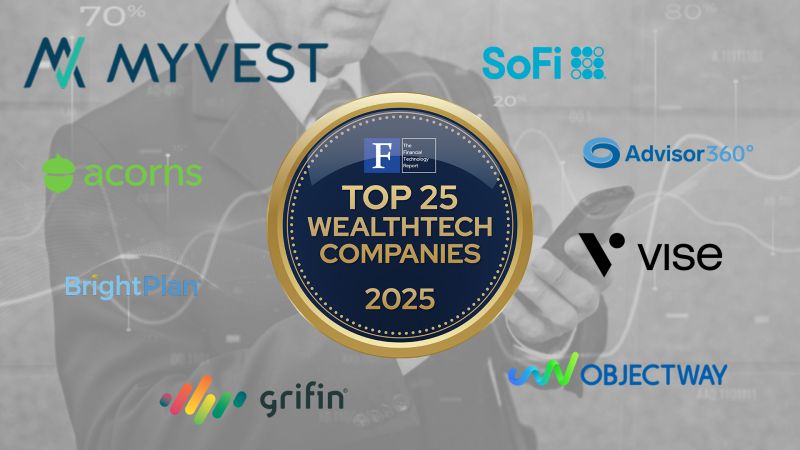Originally published in PLANADVISER | By John Manganaro | May 17, 2021
The challenges presented by the coronavirus pandemic have accentuated and accelerated the digital transformation that was already underway in the U.S. advisory and wealth management space.
As CEO of MyVest, the enterprise wealth management technology platform provider that is now a subsidiary of TIAA, Anton Honikman is charged with driving forward the company’s strategic vision, culture, and business development efforts.
Honikman tells PLANADVISER that doing this job in the past year has been challenging and rewarding. In a word, though, he says the experience was meta.
“While we are a service provider to the adviser and wealth manager community, we are also an employer ourselves, and so we had to enact the same pivot to remote-first work alongside all our clients,” Honikman recalls. “As CEO, I have been focused on maintaining productivity, promoting collaboration, and developing our positive culture, in addition to pursuing our external business goals. Like our clients, I think we have done a good job in a difficult environment.”
Honikman says this pivot to a remote-first working environment, while trying in some ways, has helped to prove the fundamental beliefs he and his colleagues hold about MyVest’s business model.
“A lot of us in the financial services industry naively thought a contraction would inevitably occur because of the pandemic, but that didn’t happen at all,” he reflects. “To be honest, there wasn’t even very much disruption for us, given our model of being essentially a software company. Everything even felt a little supercharged during 2020, in fact. Our clients needed us more than ever, and it has not slowed down. Investors’ client service expectations have been heightened by this entire experience, and that flows back to us.”
As Honikman explains it, working with his own people in a newly remote-first capacity was an eye-opening experience, helping to put into context MyVest’s mission of providing tech-based efficiencies to its adviser and wealth manager clients. He says watching his employees go through the pandemic also helped to validate the massive need that exists for truly holistic, interconnected financial advice that can help all individuals and families make better financial decisions.
“The emerging investor expects us to understand not just what’s going on in a given account, but to also understand their whole household’s finances and everything they have held away across potentially many different accounts,” Honikman says. “This expectation is reasonable. Think about being a provider that wants to offer lifetime annuities. Well, understanding your clients’ household access to pension plans is going to be a critical component to understanding their annuity needs.”
Another critical component of clients’ emerging expectations, thanks in part to the pandemic but also due to broader shifts that have been ongoing in the consumer economy, is that more people expect simple and actionable service to be provided on demand. In Honikman’s view, there is no way that advisers and wealth managers—or any professional service provider, for that matter—can ignore this fact and survive for the long term.
“As we look to the end of the pandemic and what comes next, we are trying to be strategic and not just tactical in terms of developing our own platform and solutions,” Honikman suggests. “As I’ve also said, my other big focus is on how we can return to the office safely. I can say that we will not be a remote-first company forever, and we will be returning to some kind of hybrid setting. Figuring out how to do this without disrupting our game plan and our service deliverables will be a big task, and I think there are some interesting themes that we will learn about, which we can then also apply in our business moving forward.”
Asked for his take on the rapid pace of merger and acquisition (M&A) activity that is occurring in various parts of the financial services industry, Honikman likens the situation to an arms race—especially in the retirement plan adviser and independent wealth manager verticals.
“The independent advisory firms themselves are almost in a race to get bigger and to add new capabilities,” he says. “My view is that they aren’t seeking scale for scale’s sake, if you will. My view is that they are seeking scale to secure better access to the technology and staff resources that will allow them to deliver a modern, dynamic, and evolving customer experience. The world is moving so quickly in terms of tech requirements and the customers’ expectations.”
For context, M&A activity remains at historic levels among retirement plan advisers, wealth managers, asset managers, and recordkeepers. Notably, the first quarter of 2021 set yet another transaction volume record for registered investment advisers (RIAs), according to data provided by Echelon Partners.
“It will be interesting to see what happens to the provider landscape, as well,” Honikman says. “Will the big broker/dealer [B/D] platforms be able to evolve provide the scalable, holistic services to their representatives, such that the advisers and wealth managers won’t want to go to a consolidator? It’s possible, but, on the other hand, the cost of capital remains low, so the consolidation pressure will be supported from that front, I expect. The other dynamic at play here is that the definition of advice is evolving to be much more holistic and personalized than ever before, leading adviser and wealth managers to seek new partners.”
Again returning to his firm’s roots as a software provider, Honikman says the proper development and protection of customer data repositories will remain important. He says data will be the backbone of a more personalized and responsive advisory industry that can serve the masses—not just the wealthiest Americans.
“The role of customer data will be central in informing the holistic advice and wealth management solutions of the future,” Honikman concludes. “Of course, we will have to tackle the difficult security and privacy challenges that are inherent in the data conversation. Our role as service providers will be to build and earn that trust so that consumers are more comfortable sharing their data.”
Originally published on PLANADVISER.


![Byline: The Real “AI” in Wealth – Alternative Investments’ Moment [Wealth Management]](https://myvest.com/wp-content/uploads/wealth-management-logo.webp)


![MyVest CEO predicts growth in model-delivery direct indexing [FundFire]](https://myvest.com/wp-content/uploads/Fundfire-1.png)